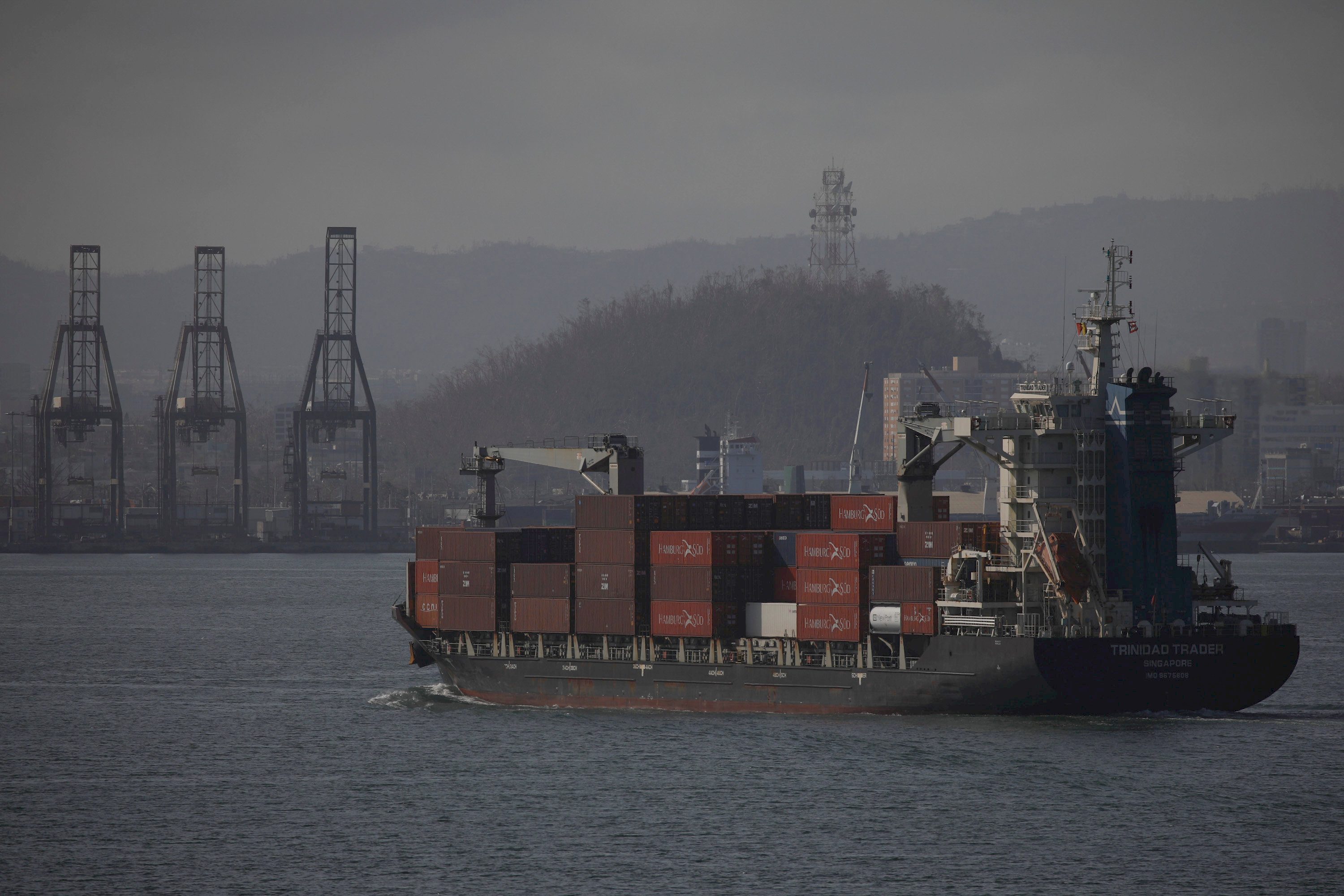A foreign cargo ship is seen in front of a port after the area was hit by Hurricane Maria in San Juan, Puerto Rico September 24, 2017. REUTERS/Carlos Garcia Rawlins
Is Temporary Jones Act Relief Possible for Reconstruction?
By Eric Lee and J. Michael Cavanaugh (Holland & Knight) – Four bills are currently pending in Congress to repeal or limit the reach of the Jones Act, which requires use of U.S.-flag coastwise endorsed vessels to move cargoes between ports or places in the United States. Three of the bills are focused upon relief efforts to assist Puerto Rico following the disastrous Hurricane Maria.
The Proposed Legislation
- H.R. 3966, introduced by Reps. Gary Palmer (R-Ala.) and Nydia Velázquez (D-N.Y.) on Oct. 5, 2017, would provide that the Jones Act shall not apply for five years with respect to such carriage to and from Puerto Rico. The bill has been referred to the House Committee on Transportation and Infrastructure, as well as the Committee on Armed Services. The bill’s text has not yet been released but is described in a press release from Palmer’s office.
- H.R. 3852, titled the Humanitarian Disaster Relief Act of 2017, was introduced by Rep. Grace Meng (D-N.Y.) on Sept. 28, 2017. This bill would add “humanitarian relief” to the criteria for which the U.S. Department of Homeland Security (DHS) may grant waivers under 46 U.S. Code Section 501(b). This bill has been referred to the House Subcommittee on Coast Guard and Maritime Transportation.
- S. 1894, introduced by Sen. John McCain (for himself and fellow Republican Sens. Mike Lee, James Lankford and Jeff Flake) on Sept. 28, 2017, would generally and permanently exempt Puerto Rico from the Jones Act. The bill has been placed on the Senate Legislative Calendar under General Orders.
- Sen. McCain also previously introduced S. 1561, titled the Open America’s Waters Act of 2017 on July 13, 2017. This bill calls for a general repeal of the Jones Act, similar to several other bills introduced by Sen. McCain going back to 2010. This bill has been referred to the Senate Committee on Commerce, Science, and Transportation.
Prospects for Passage and Other Takeaways
None of the bills appears likely to advance immediately, but H.R. 3966 and H.R. 3852 could become key elements of broader Puerto Rico reconstruction legislation, if that concept progresses. DHS did recently grant a short-term waiver after Hurricane Maria to allow use of foreign ships to move aid from the U.S. mainland to Puerto Rico.
Many of the same forces that have kept U.S. cabotage laws essentially intact for some 225 years continue to be aligned against any permanent waiver, either globally or locally focused on Puerto Rico. There are well-established U.S.-flag liner services operating in the Puerto Rico-mainland trade.
Potentially, a case can be made for a broader temporary waiver for Puerto Rican reconstruction project cargos, provided that limitations can be included to offer some protection for existing U.S.-flag services. The Palmer/Velázquez bill, H.R. 3966, would create a five-year Jones Act suspension window to aid Puerto Rican reconstruction. The Meng bill, H.R. 3852, would enable DHS to grant a Jones Act waivers on a case-by-case basis for Puerto Rico (and other coastwise destinations) on the basis of “humanitarian relief efforts” – although a U.S. Maritime Administration (MarAd) finding of unavailability of U.S.-flag vessels would still appear to be required to support such a waiver.
In hindsight, was the September DHS Jones Act waiver for Puerto Rico lawful? Relevant law at 46 U.S. Code Section 501(b) provides that DHS may issue a waiver at the request of the U.S. Department of Defense (DOD) if the latter determines the waiver is required for national defense purposes. DHS may issue a waiver on its own, also for national defense purposes, but only if MarAd finds that U.S.-flag vessels are not available. However, in the case of the Puerto Rico waiver, it appears that DHS did not rely on a DOD directive regarding national defense. Several media sources reported that MarAd found adequate U.S.-flag ships were available.
About the Authors: Eric Lee and J. Michael Cavanaugh are attorney’s at Holland & Knight LLP. This story was originally published by Holland and Knight, LLP and is republished here with permission.
Editorials do not necessarily reflect the opinion of gCaptain.com.

 Join The Club
Join The Club











